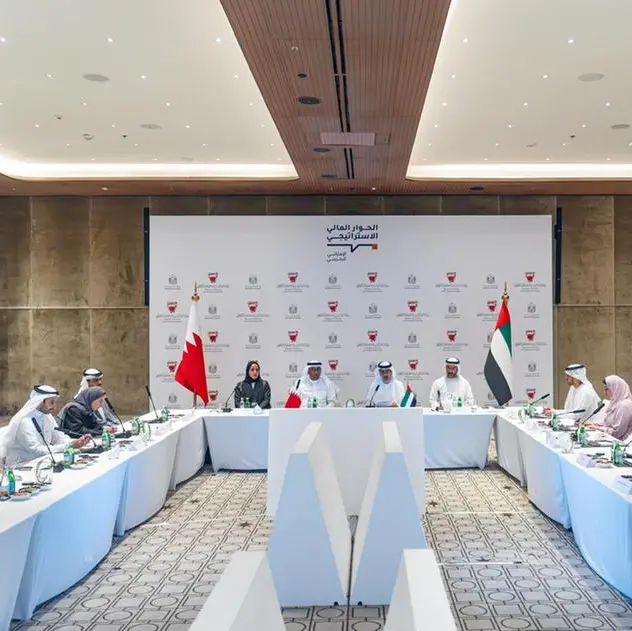Indonesia – The inaugural Islamic Retail Banking Summit was held in Jakarta, Indonesia to bring the much-needed attention to Islamic retail banking and forge a way forward together through technological advancements and innovative products that comply with the objectives of Shari’a. The event was well attended with international and local speakers, regulators, VIPs and distinguished guests.
The global banking sector is undergoing significant change and rapid digitalization and the Islamic retail finance is trying to keep up. While this has opened doors for new and innovative tools for the banking sector, it has also brought to the forefront unprecedented challenges and unknown complications. There is an urgent need for regulatory frameworks & processes to be updated based on Shari’a principles, keeping Big Data and AI in the equation as the driving force for the future of banking.
These challenges have obligated strategic moves that are and will likely be affecting the banking institutions across the globe, and it is therefore, essential that financial institutions feel the need to have calculated discussions on issues such as digital identity innovation for the consumer keeping in mind their privacy, security and consent, digital banking transformation, and the future of an open finance framework.
Professor Humayon Dar, in his opening remarks, touched upon the potential of Islamic retail finance, with assets reaching up to US$2.219 trillion, which is region-focused. The nucleus of Islamic banking remains in the Middle East, centred on the six nations of the Gulf Co-operation Council (GCC) that together account for just over two-thirds of all Shari’a-compliant assets worldwide
The theme of this summit was Digital Revolution and Islamic Retail Banking, an apt topic considering that the banking sector is undergoing significant change and rapid digitalization that has only picked up pace in the post-COVID era.
The first panel discussion was on FinTech as a Catalyst for Growth of Islamic Retail Banking. This session was moderated by Mohamed Naeem Ebrahim, Head of Retail Banking, FNB Islamic Banking and eminent speakers included; Dima Djani, Founder and President Commissioner, Alami Group; Melika Badri Mohammad, Chief Executive Officer, ZamZam Bank; Saleemullah Shaikh, Deputy Chief Executive Officer, MCB Islamic Banking; and Mohd Fhauzi Muridan, Country Head, UOB Islamic Banking.
The distinguished speakers discussed the important role that Islamic retail banking & finance is playing in today's world and the future prospects of this segment in the development and evolution of the global Islamic finance industry. Technology is penetrating into every sphere of our daily lives, from banking to travel, leisure to work and the retail finance industry is not any different with new technologies disrupting the established norms forcing banks to innovate.
While Islamic FinTech accounts for less than 1% of the global FinTech industry, sector data points to Islamic FinTech growth among OIC countries at a 21% CAGR by 2025, compared to a CAGR of 15% for conventional FinTech. In countries like Indonesia and Malaysia, FinTech is already penetrating the daily lives of customers, digitalizing payments, financing, and other macro services. However, the challenge that arose from this was that these services were only feasible for people already in the financial net, and not the excluded. There is a need to use FinTech for financial inclusion, as approximately 70% of the global population is financially excluded due to various reasons, with the majority of them being Muslims. Therefore, Islamic FinTech can play an immensely important role in financial inclusion by providing Shari’a compliant services in remote areas and at grassroot levels.
The second panel was on the Use of Technology for Enhancing Social Responsibility in Islamic Banking and Finance moderated by M. Gunawan Yasni, Shari’a Scholar. The extinguished panel included Dr Imam Teguh Saptono, Vice Chairman of Badan Wakaf Indonesia; Dr Sutan Emir Hidayat, Director of Islamic Economy Infrastructure Ecosystem, KNEKS Indonesia, Muhammad Khan; Head of Islamic Banking, HABIBMETRO SIRAT, Pakistan; and Noor Azian Ismail, Senior Director, Group Islamic Business and Takaful, Maybank Malaysia.
Islamic banks worldwide are stepping up for sustainability and green finance with a general belief that technology can upgrade social responsibility programmes for a better tomorrow. The concept of social responsibility is gaining more and more attention, especially since the pandemic. However, for Islamic finance this is as old as the industry. Islamic Finance is intrinsically socially responsible with tools such as zakat, waqf and qard alhasan. Today, technology can be used as a tool to make social responsibility more effective and measurable.
The speakers touched upon different projects and initiatives that banks in particular have taken up to improve the financial status of a majority of population in their native countries and indirectly globally. It was a point of discussion that financial education and awareness is a pre-requisite for financial inclusion that will lead to a more socially responsible Islamic finance industry.
-Ends-
About Cambridge IFA:
Cambridge IFA is a financial services intelligence house that specialises in developing and utilising powerful cutting-edge analytical tools to evaluate business data, assess macroeconomic indicators and understand market trends, leadership positioning and brand development relevant to the development of the financial services industry globally.
The principal activity of Cambridge IFA is developing performance indicators specific to alternative practices of banking and finance. It also aims to provide strategic advice to governments, financial institutions and multilateral organisations in the development of financial markets including alternative banking and finance products, procedures, practices and policies.
Through our strong and invaluable relations with policymakers and private sector industries, we have insights into market and business trends as well as policy changes. This allows us to identify and prioritise common issues and provide perspectives and solutions that are practical, focused and effective; which will increase the competitive advantage of our clients.
Cambridge IFA is a member of the Cambridge-Edbiz Group of Companies headquartered in London.



















